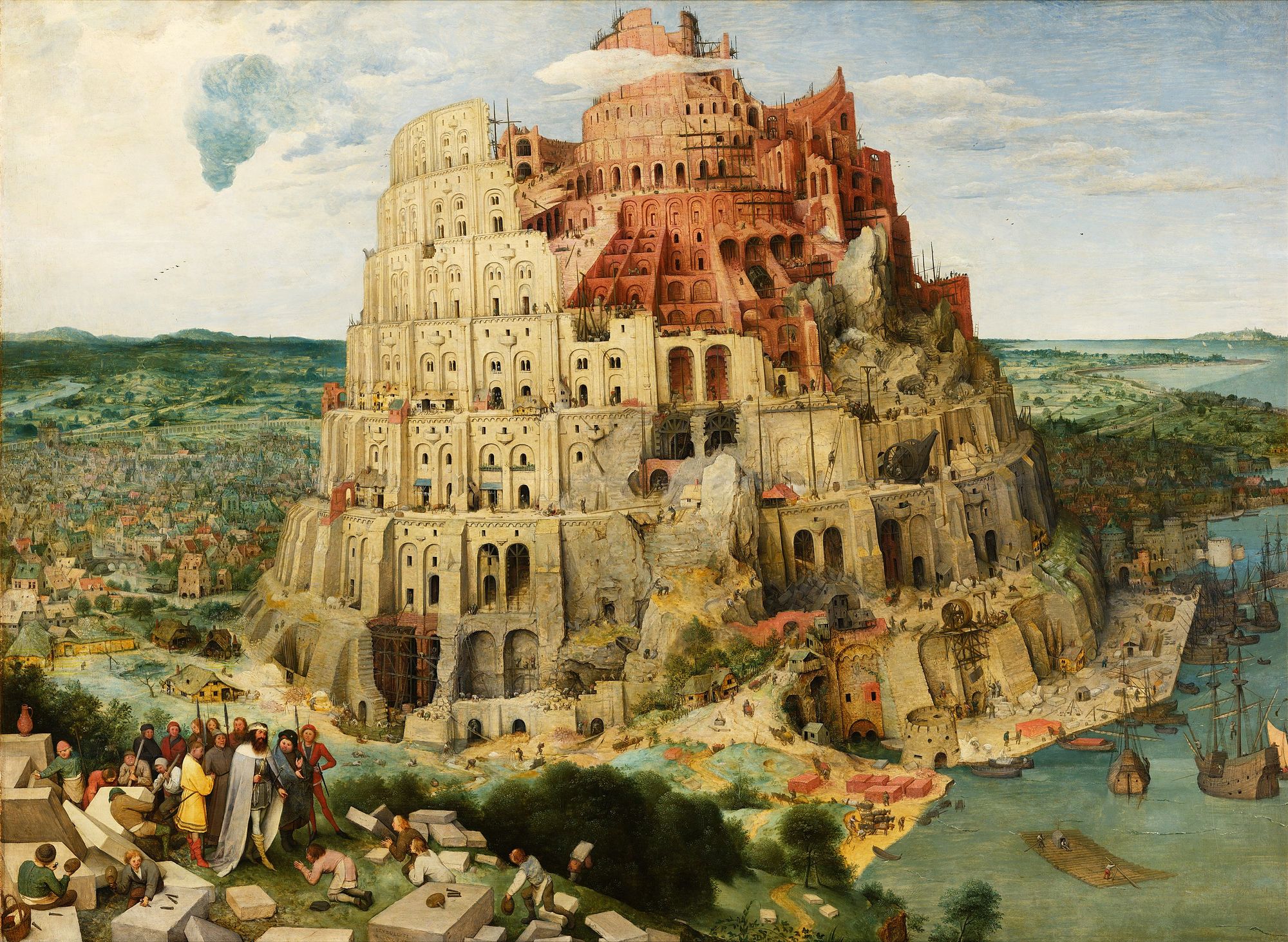An Honest Day's Work

The Tower of Babel by Pieter Bruegel the Elder, c. 1563
There's a meme about dads in construction, who drive around town and brags to their kids about everything they built. Hell, my dad even did this, and he only did odd jobs with his plumber buddies. Yep, back in 97, he ran all the copper at that old party store.
But even for his day job, my dad busted his ass, driving all over Michigan to help manufacturing plants keep their assembly lines going. He'd see a V8 Cadillac and rattle off a story about working in the Northstar engine plant. I always remember him being proud of his work helping automakers automate the process of building a vehicle.
I never took to the family line of work. My dad's brothers are all engineers of some sort, following my grandpa, who was a mechanical engineer. He designed a lot of tooling for General Motors, and he'd have you know that he made a tricky part on the Corvette possible (the A pillar, I think). Nonetheless, I come from a family of people who made it easier to build cars.
My dad had hoped I'd follow suit, or at least nudged me towards a path he knew. I had strong analytical skills as a kid, a by middle school I'd surpassed the math ability of my parents. I'd also taken an interest in drafting, mostly because I enjoyed sitting at the board and going through the ritual of taping a sheet down and drawing a frame with the sliding edge and labeling the work with perfect block caps.
But the analog part of drafting was only to get a student's feet wet. I'd started to learn CAD in middle school, and by my freshman year of high school, I'd already mastered it. Me and one of my best friends were the only 9th graders in an otherwise senior class of 35. While everyone else dicked around, we'd finish a week's worth of drawings in a class period, only to dick around the rest of the week.
The lack of tactile feedback in CAD ruined drafting for me. Up until that point, I was convinced I'd be an engineer, or at the very least an architect. But growing bored of something at 14 isn't a good sign, so during my sophomore year I broke free of all the industrial-engineering elective classes and leaned hard into my school's business curriculum, thinking I'd be an investment banker or something. And boy was I wrong.
Nowadays, I spend my days in CAD software, creating plans for the people who write the code that is supposedly eating the world. But I really should say spend my days, because often I string together several days where I'm not doing any designing at all. Most of software planning is talking with other people about the problems, and then writing down the specifications in prose. In art, a picture might be worth a thousand words. But in software, every picture must be paid for with 1000 words. I'm starting to think the writing is the only redeeming part of my work.
After nearly a decade in this profession, I don't feel like I have much to show for all the time. Unlike the construction worker, I can't do a drive-by on an old job if I happen to be in the neighborhood. Much of my work is hidden behind corporate firewalls, and even if it wasn't, software changes so fast that most of the projects I've shipped have been made redundant. Then there's all of those speculative projects that never went into production.
I envy the graphic artist, with stacks of accordion folders and flat file drawers overflowing with work. Real, tactile work, which before the days of CAD, was the result of a long process that involved taking film photographs and splicing typography and cementing them down to paper. And then it had to go back and forth for revisions before getting couriered to the printer so it could exist in the world.
That process, and the resulting work, was evidence of a hard day's work. It may not have been back-breaking, like a mason's work, but when all is said and done there are artifacts which show your hand. Some day, you can rummage through your archives and scatter the work across your dining room table and marvel in your body of work.
In software, everything is incremental. I might spend a couple of months working on a new feature, which is merely a minor tweak to an existing interface. It often feels like groundhog day because there's inevitably back and forth, where I retrieve some minor detail from an old version to add to the current one. And then I do the same thing for a couple of concurrent projects.
It's never clear to me that I've actually done anything, and I can't say I ever really feel like I put in an honest day's work. Most of it is meetings and remixing things that already exist. And there aren't any artefacts that tell me I am indeed doing something. Software always gets overwritten, often within just a year or two. And it's not like we're allowed to keep copies of proprietary codebases, and even if we were, it's likely that computers in a decade won't be able to run those ancient instructions anyways.
It's a real shame that my best work will eventually disappear without a trace. How much longer can I keep at this? I'm really not sure. But as much as I enjoy building furniture and renovating my house, that's not work, and sooner or later I'm going to have to start producing real things. Pixels never last, but atoms surely do.